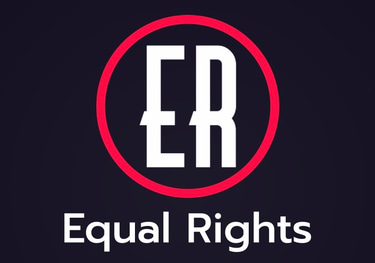Understanding Human Rights:
A Comprehensive Guide
Kylo B
6/30/2024
Understanding Human Rights: A Comprehensive Guide
Human rights are fundamental principles that aim to protect the inherent dignity and worth of every individual, regardless of nationality, ethnicity, gender, or any other status. They are universal, inalienable, and indivisible, serving as the cornerstone for justice, peace, and democracy worldwide.
This comprehensive guide delves into the concept of human rights, their historical development, and their significance in contemporary society.
What Are Human Rights?
Human rights are basic rights and freedoms that belong to every person in the world, from birth until death. They encompass civil, political, economic, social, and cultural rights, ensuring individuals can live with freedom and dignity.
Key Characteristics of Human Rights:
Universal: Apply to everyone, everywhere, without exception.
Inalienable: Cannot be taken away, except in specific situations and according to due process.
Indivisible and Interdependent: All rights are equally important and interrelated; the enjoyment of one right often depends on the realization of others.
The History of Human Rights
The concept of human rights has evolved over centuries, influenced by various philosophical, religious, and political traditions.
1. Ancient and Medieval Origins: Early human rights ideas can be traced back to ancient civilizations, such as the Code of Hammurabi in Babylon and the Magna Carta in England. These documents laid early foundations for concepts of justice, equality, and the rule of law.
2. The Enlightenment and Natural Rights: The Enlightenment era in the 17th and 18th centuries brought a significant shift, with philosophers like John Locke advocating for natural rights—life, liberty, and property—rooted in the intrinsic value of human beings.
3. The American and French Revolutions: The American Declaration of Independence (1776) and the French Declaration of the Rights of Man and of the Citizen (1789) were pivotal, emphasizing liberty, equality, and fraternity. These documents inspired subsequent human rights frameworks.
4. The United Nations and the Universal Declaration of Human Rights (UDHR): The atrocities of World War II underscored the need for a comprehensive international human rights framework. In 1948, the United Nations General Assembly adopted the UDHR, outlining 30 articles detailing fundamental human rights.
Why Human Rights Matter
Human rights are essential for ensuring the dignity, freedom, and well-being of individuals. They provide a foundation for a just society where everyone can live free from fear and want.
1. Protecting Individuals from Abuse and Discrimination: Human rights laws and conventions safeguard individuals from arbitrary and discriminatory actions by governments and other entities, ensuring equal treatment and protection under the law.
2. Promoting Social Stability and Peace: Respect for human rights fosters social cohesion and peace. Societies that uphold human rights are more likely to experience stability and development, as they address the root causes of conflict and inequality.
3. Empowering Individuals and Communities: Human rights empower individuals by guaranteeing freedoms such as expression, assembly, and association. This enables people to participate actively in their communities and advocate for change.
4. Guiding International Relations and Development: Human rights principles guide international relations and development efforts, ensuring that policies and programs aim to improve the well-being of all people, particularly the marginalized and vulnerable.
The Framework of Human Rights
The contemporary human rights framework is vast, comprising various treaties, conventions, and declarations at international, regional, and national levels.
1. International Treaties and Conventions: Key international human rights instruments include:
The International Covenant on Civil and Political Rights (ICCPR): Protects civil and political rights such as freedom of speech, assembly, and fair trial.
The International Covenant on Economic, Social, and Cultural Rights (ICESCR): Ensures rights related to work, education, health, and an adequate standard of living.
The Convention on the Elimination of All Forms of Discrimination Against Women (CEDAW): Focuses on women's rights and gender equality.
The Convention on the Rights of the Child (CRC): Protects the rights of children.
2. Regional Human Rights Systems: Regional bodies complement international frameworks by addressing specific issues pertinent to their regions:
The European Convention on Human Rights (ECHR): Enforced by the European Court of Human Rights.
The American Convention on Human Rights: Overseen by the Inter-American Commission and Court of Human Rights.
The African Charter on Human and Peoples' Rights: Monitored by the African Commission and Court on Human and Peoples' Rights.
3. National Constitutions and Laws: Many countries have incorporated human rights principles into their constitutions and legal systems, ensuring domestic protection and enforcement of these rights.
Challenges and Criticisms
While human rights are universally accepted in principle, their implementation faces numerous challenges and criticisms.
1. Political and Cultural Relativism: Some argue that human rights are Western-centric and may conflict with local traditions and values. This tension can hinder the universal application of human rights.
2. Enforcement and Compliance: Ensuring compliance with human rights standards is a significant challenge. Many countries ratify treaties but fail to implement them effectively, leading to widespread violations.
3. Emerging Issues: New challenges, such as digital privacy, climate change, and global migration, require the human rights framework to evolve continually. Addressing these issues necessitates innovative approaches and international cooperation.
Human rights are a fundamental aspect of human dignity and justice.
Understanding their history, significance, and framework is crucial for promoting a just and equitable world.
Despite challenges, the continued advocacy and protection of human rights remain essential for fostering peace, stability, and the well-being of all individuals.
As global citizens, it is our collective responsibility to uphold and advance these rights, ensuring a better future for generations to come.
